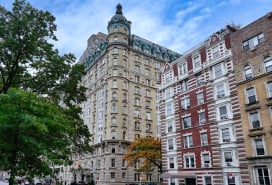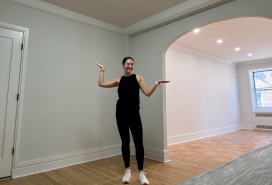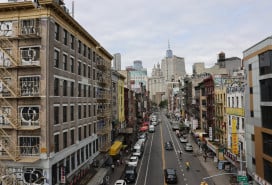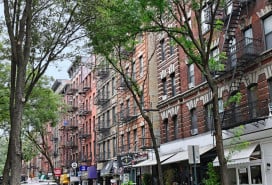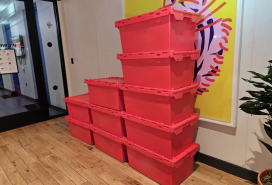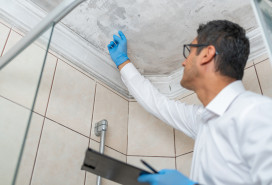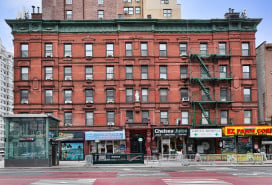Is a co-op sponsor unit the best bet for freelancers? Plus, five listings on the market
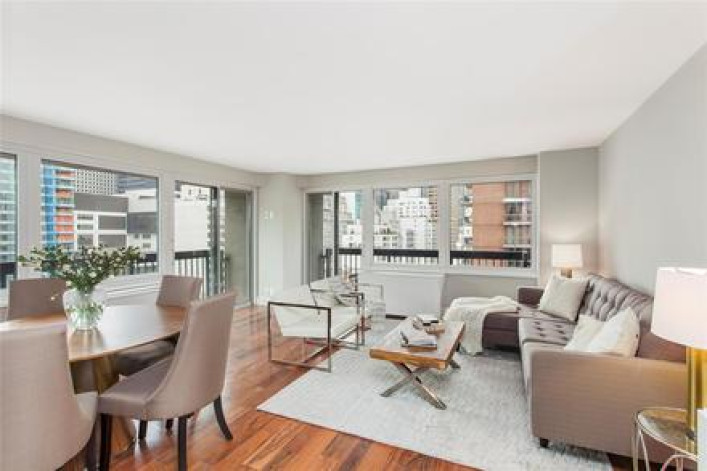
Freelancing got you all sure you'll be renting forever? In this week’s Buy Curious, guest broker Eydie Saleh of Mirador Real Estate shares her intel on co-op sponsor units so you can determine whether they may or may not turn you into a homeowner after all.
THE WISH LIST:
I’m a freelancer and am afraid I would have problems with a co-op board. I’m interested in co-op sponsor units. Can you tell me a little bit about them? Is there a neighborhood that has a lot? And can you recommend some in Manhattan and Brooklyn?
THE REALITY:
First things first: Being a freelancer does not necessarily lessen your chances of being approved by a co-op board. “In my experience, if you are financially stable, have good credit, and are approved for a loan, there should not be an issue,” says Saleh.
That said, some New York City buildings with rather conservative co-op boards at the helm may have a preference for tenants with steady jobs. The constant flow of income, they believe, will make it less likely for residents to have trouble making payments in the future and potentially endanger the financial security of the building.
Enter sponsor units, which are created when a rental building is converted into a co-op (or condo) and some apartments are kept as investments by the developer (aka the “sponsor” of the conversion). With these types of properties, you're allowed to buy into the building without going through the board interview part of the process. The application is submitted to the sponsor only, so members of the board don’t get a chance to voice their objections to the sale. The apartment is yours as long as your offer is accepted. And since there’s no board review required, the buying process is often much quicker than usual.
Although all that probably sounds perfect to a freelancer such as yourself, there are many considerations when considering a sponsor unit, says Saleh. “Most sponsor units oblige the buyer to pay the seller’s transfer taxes”—which are usually between 1.4 and 1.8 percent of the purchase price—“and sometimes even the sponsor’s attorney fees,” adding to the expenses.
And sponsor units aren’t that easy to come by. “In today’s market, sponsor units are… few and far between,” says Saleh.According to Streeteasy, there are only 26 co-op sponsor units currently available in Manhattan, ranging from an Inwood studio for $209,000 to a Morningside Heights five-bedroom for $3.75 million. In Brooklyn, there are even fewer, with only 14 units up for grabs, from a $179,000 Bay Ridge studio to a Prospect Heights three-bedroom for $1.999 million.
There also aren’t any neighborhoods where sponsor units tend to be prevalent. “On the contrary, they are sporadic and rare,” says Saleh. Given that so few of these units on sale at any given time, she adds, “you may not want to narrow your search to just sponsor units.”
What's available right now: 
A Gramercy Park two-bedroom, two-bath co-op, $499,000: Located at 201 East 15th Street between Third Avenue and Rutherford Place, this sponsor unit has a rent-stabilized tenant in place paying $1,548.11 a month, so you may not be able to move in right away. The elevator building offers a live-in super and laundry in the basement. Storage is also available for a small fee.
An Upper West Side two-bedroom, one-and-a-half bath co-op, $1.875 million: This classic-six at 131 Riverside Drive between West 85th and West 86th streets has nine-foot ceilings, a large entry foyer, a spacious living room, a formal dining room, a maid’s room and tons of closets. But it'll need a little TLC. Transfer tax for the sponsor unit is to be paid by the purchaser.

A Clinton Hill two-bedroom, one-bath co-op, $559,000: The dining area of this sponsor unit at 193 Clinton Avenue between Myrtle and Willoughby Avenues has already been converted into a second bedroom. The kitchen was recently renovated with stainless steel appliances and the bathroom was redone in white subway tile. The apartment also features closets galore, oversized windows and parquet floors throughout.

A Prospect Lefferts Gardens two-bedroom, two-bath co-op, $695,000: This 1,000-square-foot sponsor unit at 163 Ocean Avenue between Chester Court and Beekman Place has a renovated eat-in kitchen with a window and stainless steel appliances, an open floor plan, new hardwood floors and generous closets. The pre-war building features two elevators, a laundry room, a bike room, storage and a garden courtyard.
Related:
Everything you ever wanted to know about sponsor apartments but were afraid to ask
Skip the board interview—and other reasons a sponsor co-op may work for you



